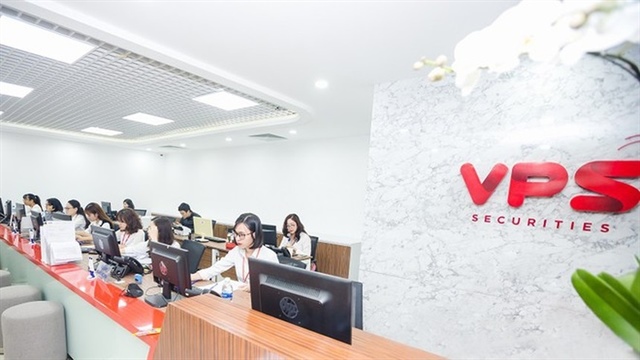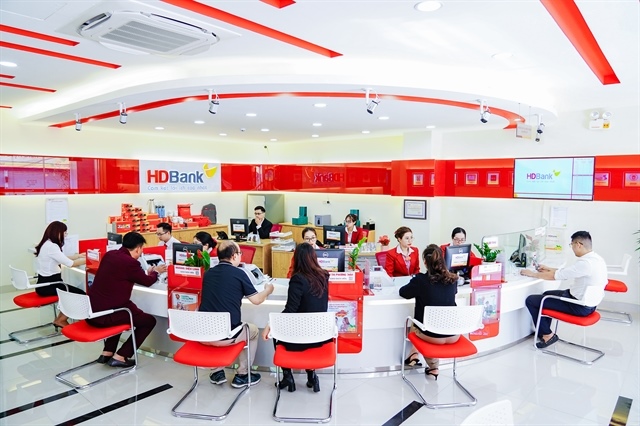Vietnam offers more “room” for foreigners at weak banks
Vietnam offers more “room” for foreigners at weak banks
The government of Vietnam is considering lifting the ceiling foreign ownership ratio in Vietnamese banks in an effort to make Vietnamese banks more attractive in the eyes of foreign investors.

There has been no good news for the Vietnam’s stock market so far this year. However, analysts believe that the market would prosper when the new decree on the foreign ownership ratio in Vietnamese banks is promulgated, under which the foreign ownership ratios in some banks may be raised to up to 40 or 49 percent.
It is expected that the new decree would be applied to the listed and unlisted credit institutions (joint stock banks, joint stock finance companies, joint stock finance leasing companies), and the credit institutions which are shifting from 100 percent state owned or limited companies into joint stock institutions.
Under the current laws, a foreign strategic investor must not own more than 15 percent of the stakes in one Vietnamese bank. The investor would only be able to obtain 20 percent of the stakes in the bank, if it gets the approval from the Prime Minister.
Most recently, the Prime Minister allowed VietinBank to sell 20 percent of stakes to a foreign strategic investor. On February 26, the extraordinary shareholders’ meeting of Vietinbank decided to choose The Bank of Tokuo-Mitsubishi UFJ Ltd (BTMU) as the foreign strategic investor. It has also decided to issue 644,389,811 shares to BTMU in the first or second quarter of 2013.
Analysts have pointed out two most important provisions in the draft decree.
First, Vietnam may allow foreign strategic investors and relating people to own 20 percent of the chartered capital of on Vietnamese credit institution (the current ceiling ratio is 15 percent).
The strategic foreign strategic investors which are foreign credit institutions must have the minimum total assets worth $20 billion, have at least five years experiences in international operation. Especially, they must be recognized by international credit rating firms as capable to fulfill financial commitments and maintain normal operation even in the negative conditions.
The strategic foreign investors in credit institutions must not be the strategic investors, big shareholders or founding shareholders in any credit institutions in Vietnam. The foreign strategic shareholder in a credit institution would be able to hold less than 10 percent of the chartered capital of any other credit institution.
Second, the total stakes held by all the foreign investors and relative people in one Vietnamese credit institution must not be higher than 30 percent of the chartered capital of the institution.
There is a noteworthy provision in the draft decree that in some special cases, the Prime Minister may allow foreign investors and relative people to hold more than 30 percent of the stake sat some Vietnamese commercial banks. This would help better the process of restructuring commercial banks.
Commenting about the draft decree, analysts said the government tends to create most favorable conditions for the banking system restructuring.
A lot of weak commercial banks have been trying to increase the stockholder equity by selling stakes to settle the two biggest problems, the bad debts and the weak liquidity.
However, it’s obviously very difficult to sell stakes at this moment and in the context of the gloomy stock market. Therefore, domestic banks now tend to seek capital from foreign sources.
Some foreign investors said at the Vietnam Business Forum held in late 2012 that the current regulations on the maximum foreign ownership ratio cannot attract investors, while proposing to raise the ratio to 51 percent or 65 percent.
vietnamnet




























